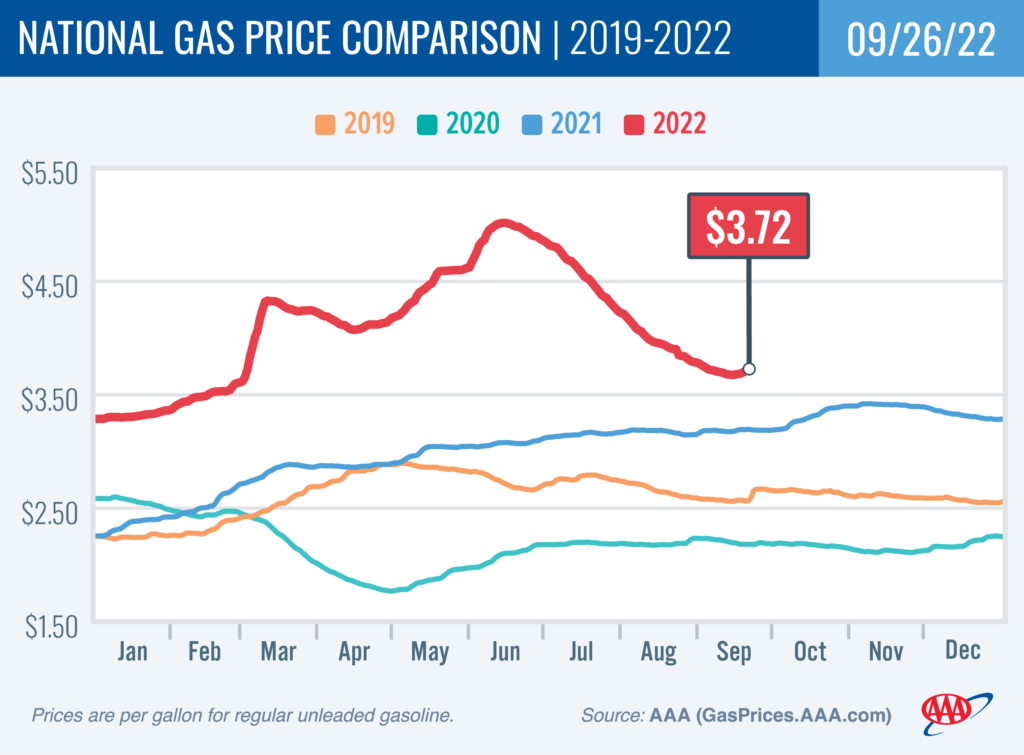WASHINGTON, D.C. — Gas prices rose a nickel over the past week, as the national average pump price hit $3.72. The main reason is higher regional prices on the West Coast and the Midwest due to refinery issues ranging from planned maintenance to a fire. But low domestic demand as fewer drivers fuel up and much lower oil prices have helped to blunt some of the impact. On Friday, the price of oil slipped below $80 a barrel for the first time since January, primarily due to fears of a recession-led global economic slowdown.
“Slack demand and lower oil prices should take some pressure off rising gas prices,” said Andrew Gross, AAA spokesperson. “But Hurricane Ian could cause problems, depending on the storm’s track, by disrupting oil production in the Gulf of Mexico and impacting large coastal refineries.”
Meanwhile, according to data from the Energy Information Administration (EIA), gas demand decreased from 8.49 million b/d to 8.32 million b/d last week. Moreover, according to the EIA, total domestic gasoline stocks increased by 1.6 million bbl to 214.6 million bbl. Although gasoline demand has decreased, tight supply and fluctuating oil prices have increased the national average price. However, if gas demand remains low pump price increases will likely be minimal.
Today’s national average of $3.72 is 14 cents less than a month ago but 54 cents more than a year ago.

Quick Stats
- The nation’s top 10 largest weekly increases: Oregon (+36 cents), Wisconsin (+35 cents), California (+35 cents), Washington (+29 cents), Nevada (+19 cents), Ohio (+17 cents), Michigan (+17 cents), Alaska (+16 cents), Indiana (+16 cents) and Iowa (+16 cents).
- The nation’s top 10 most expensive markets: California ($5.79), Hawaii ($5.23), Nevada ($5.10), Oregon ($5.00), Washington ($4.92), Alaska ($4.80), Idaho ($4.41), Utah ($4.20), Arizona ($4.10) and Illinois ($3.97).
Oil Market Dynamics
At the close of Friday’s formal trading session, WTI decreased by $4.75 to settle at $78.74. Crude prices reached a point not seen since early January 2022, as the market continues to worry that efforts by the Federal Reserve to curb inflation could lead to a recession. If a recession occurs, crude demand and prices would likely decline. For this week, crude prices could continue to decrease if recession fears persist. Additionally, EIA’s latest weekly report showed that total commercial crude inventories increased by 1.2 million bbl to 430.8 million bbl.
Drivers can find current gas prices along their route using the AAA TripTik Travel planner.
